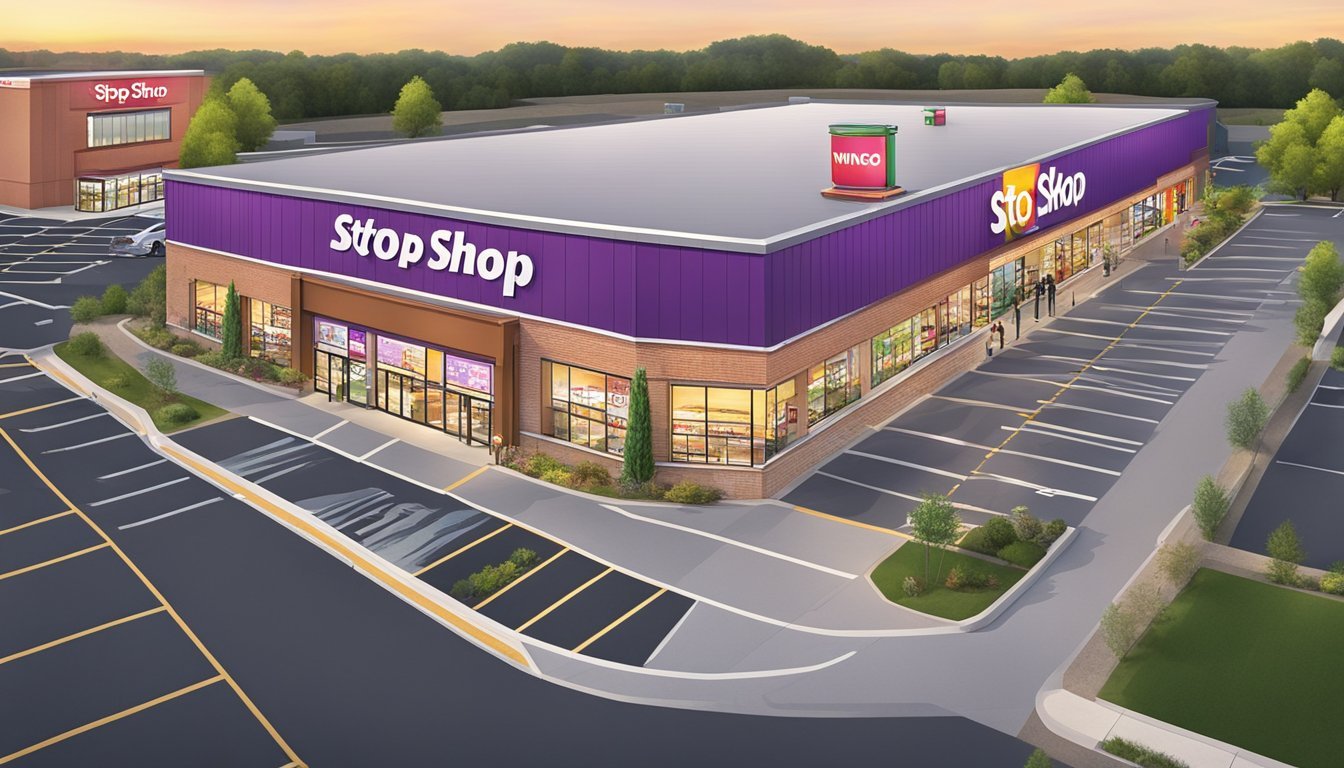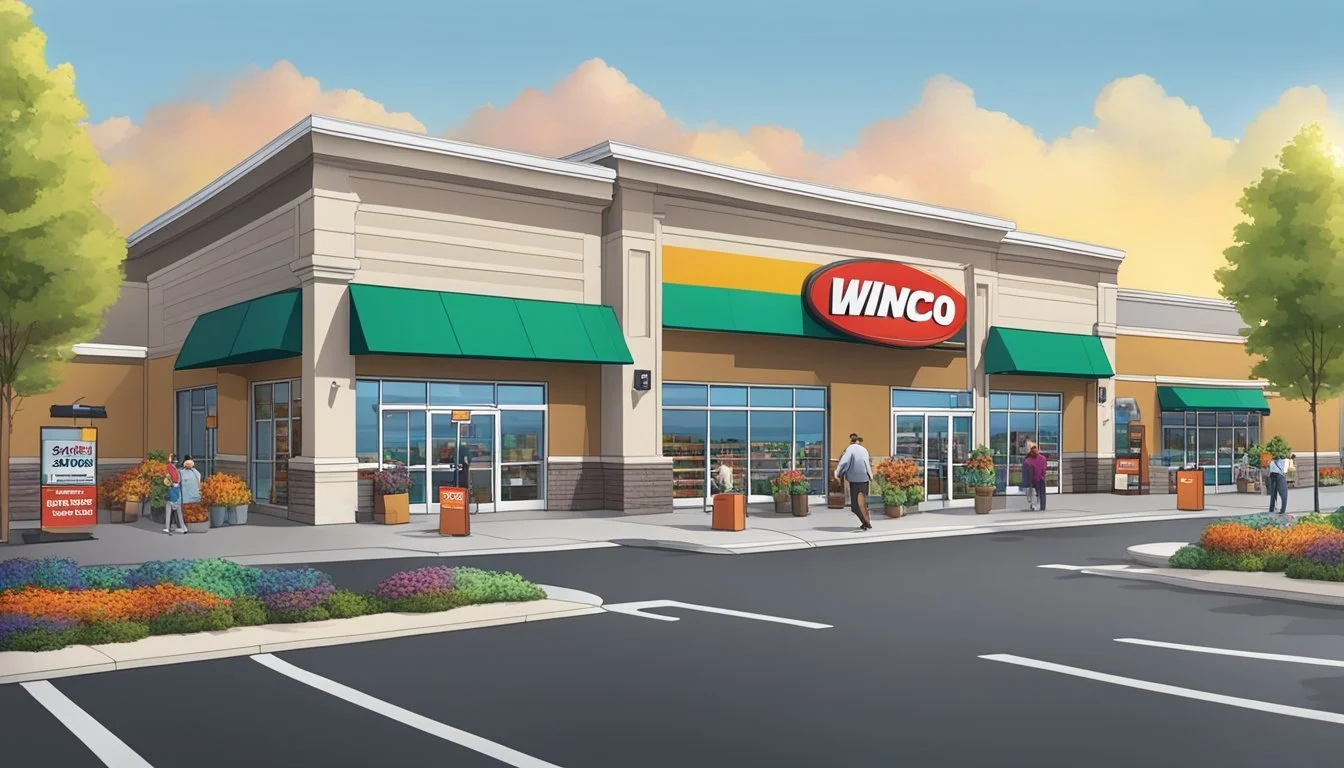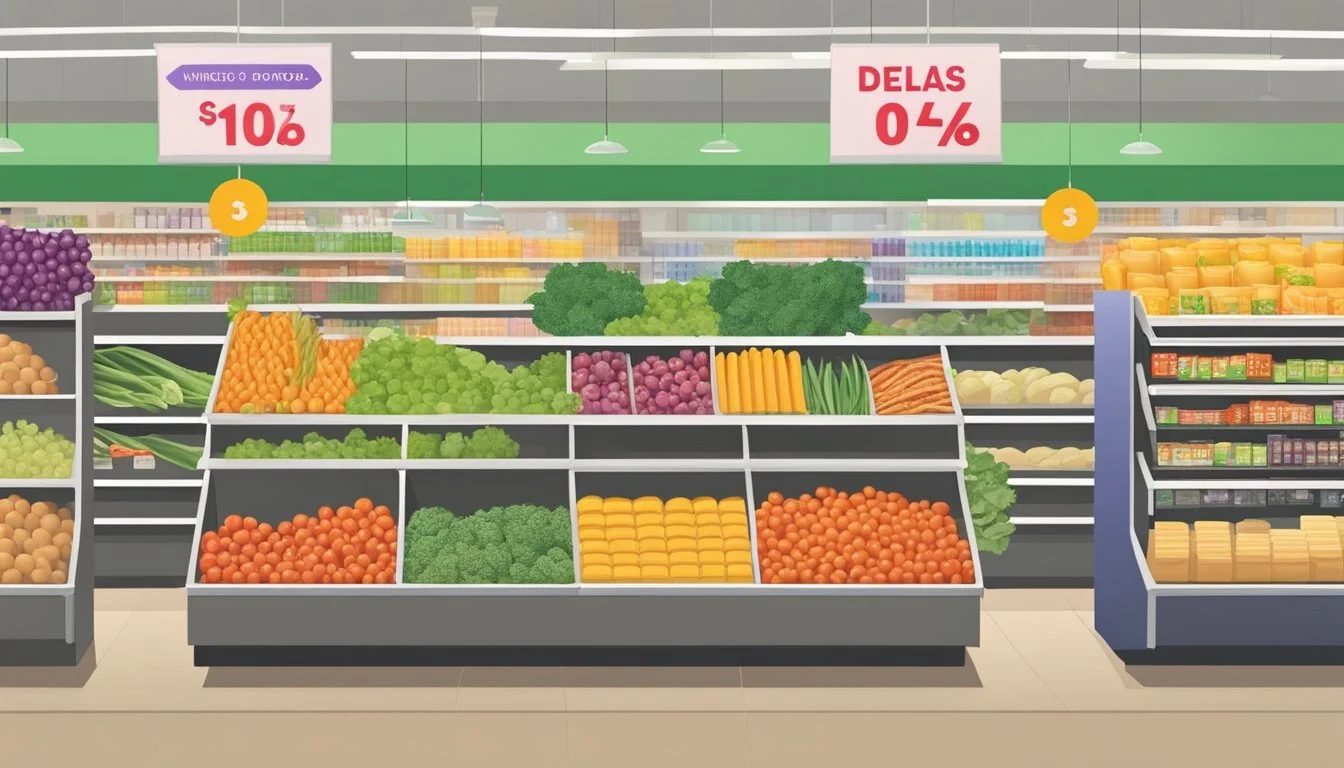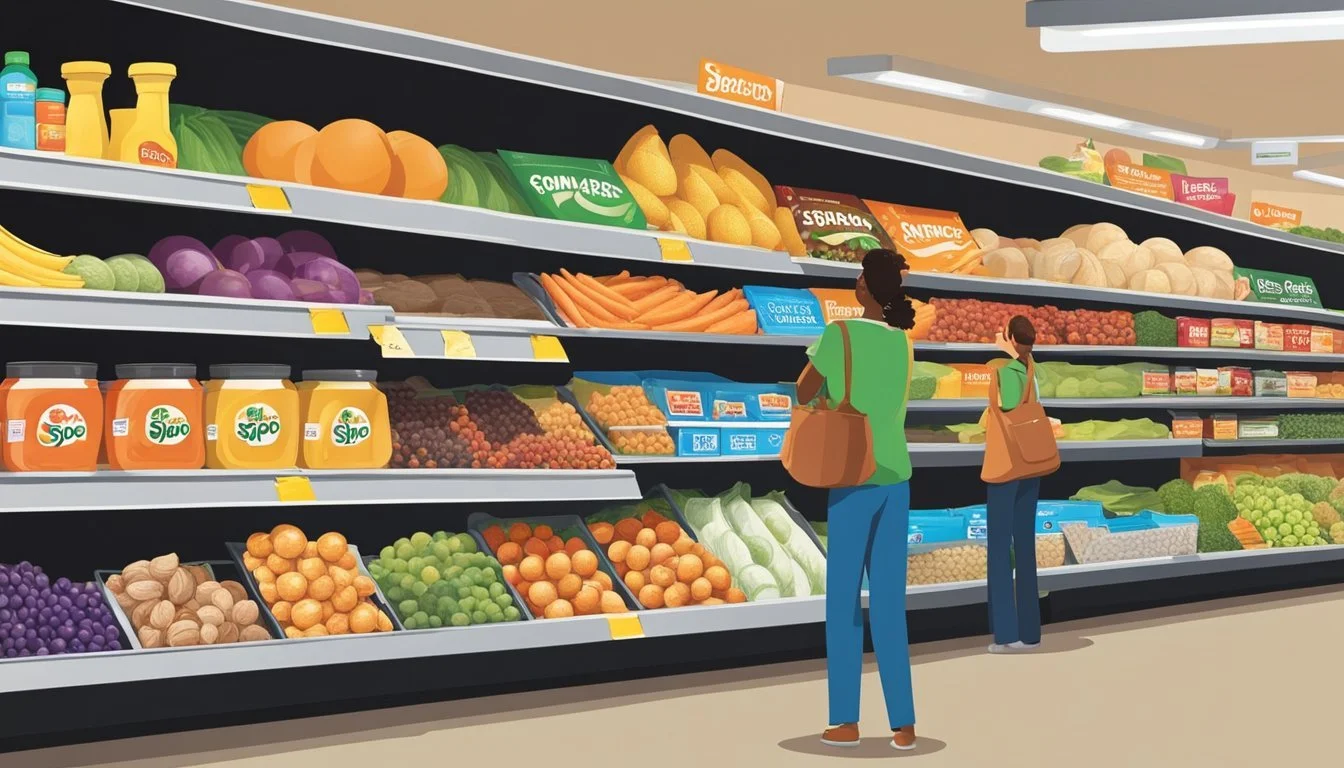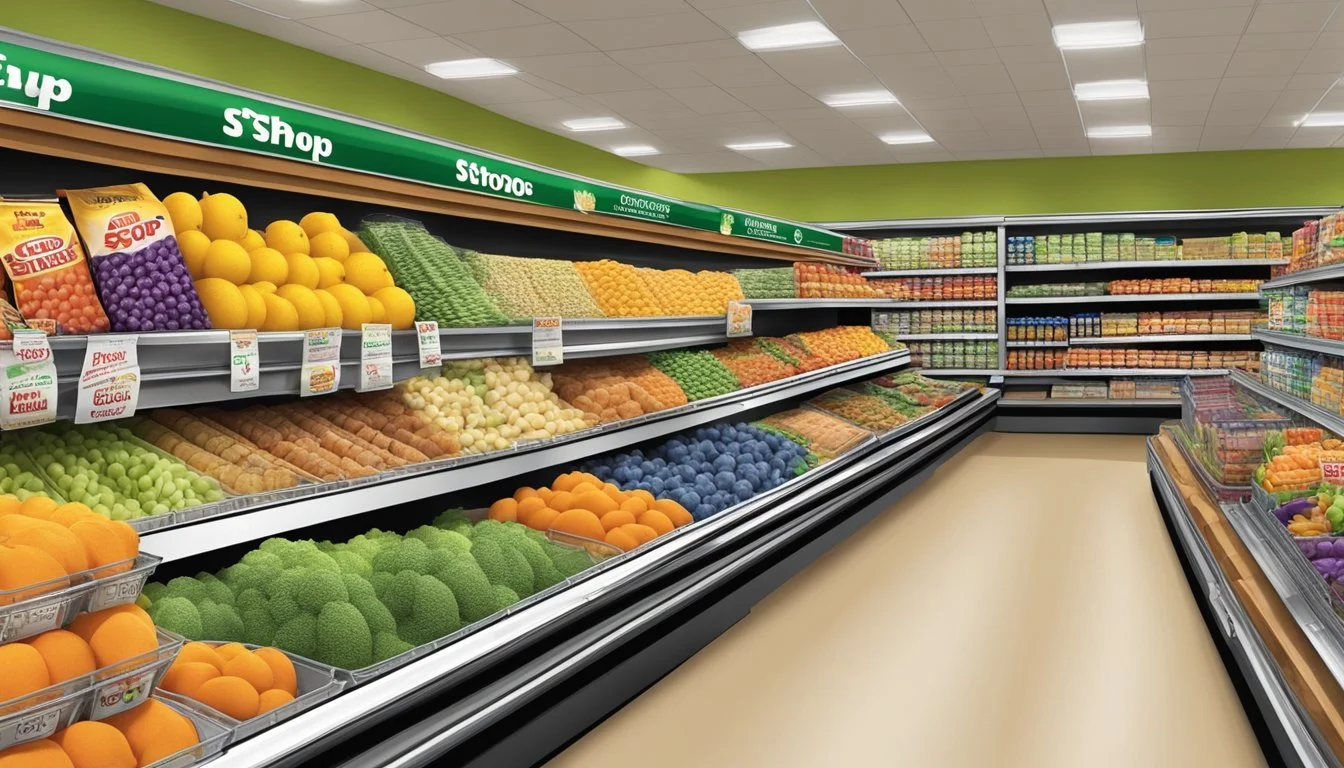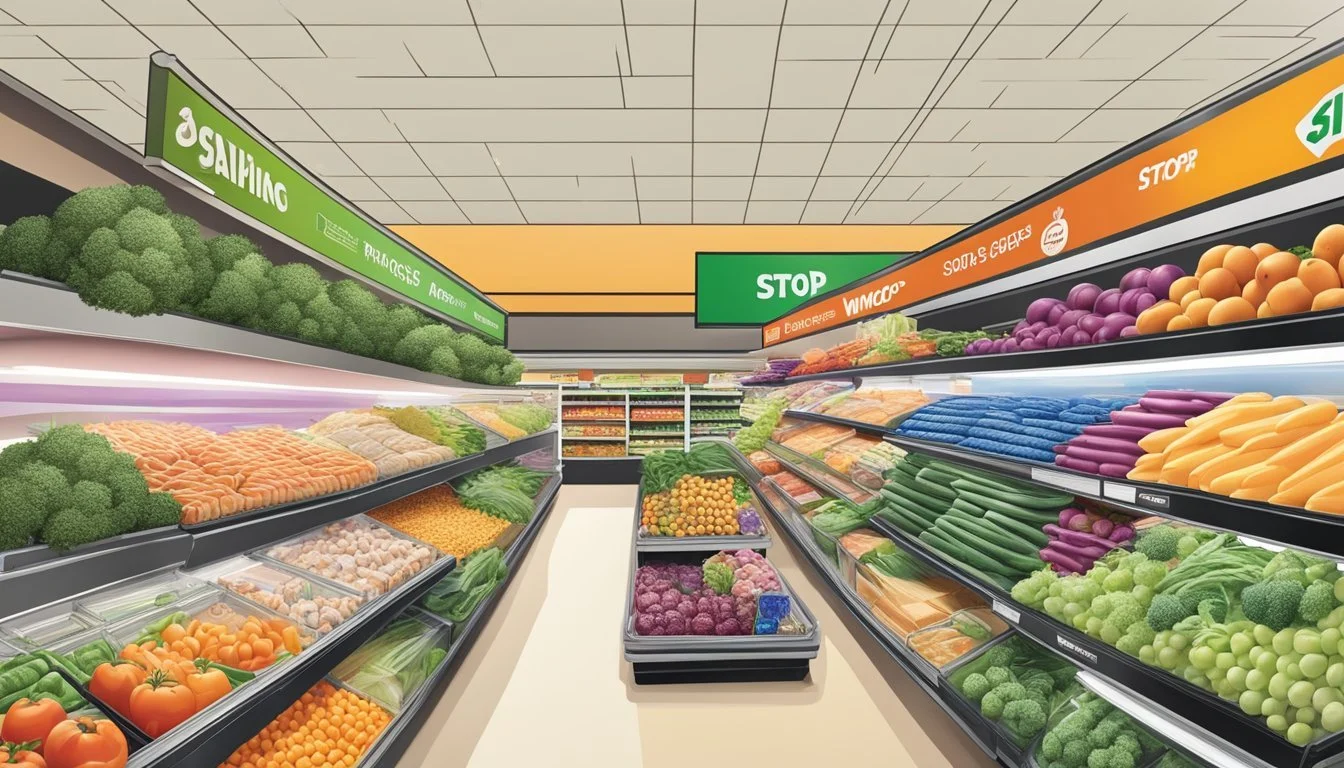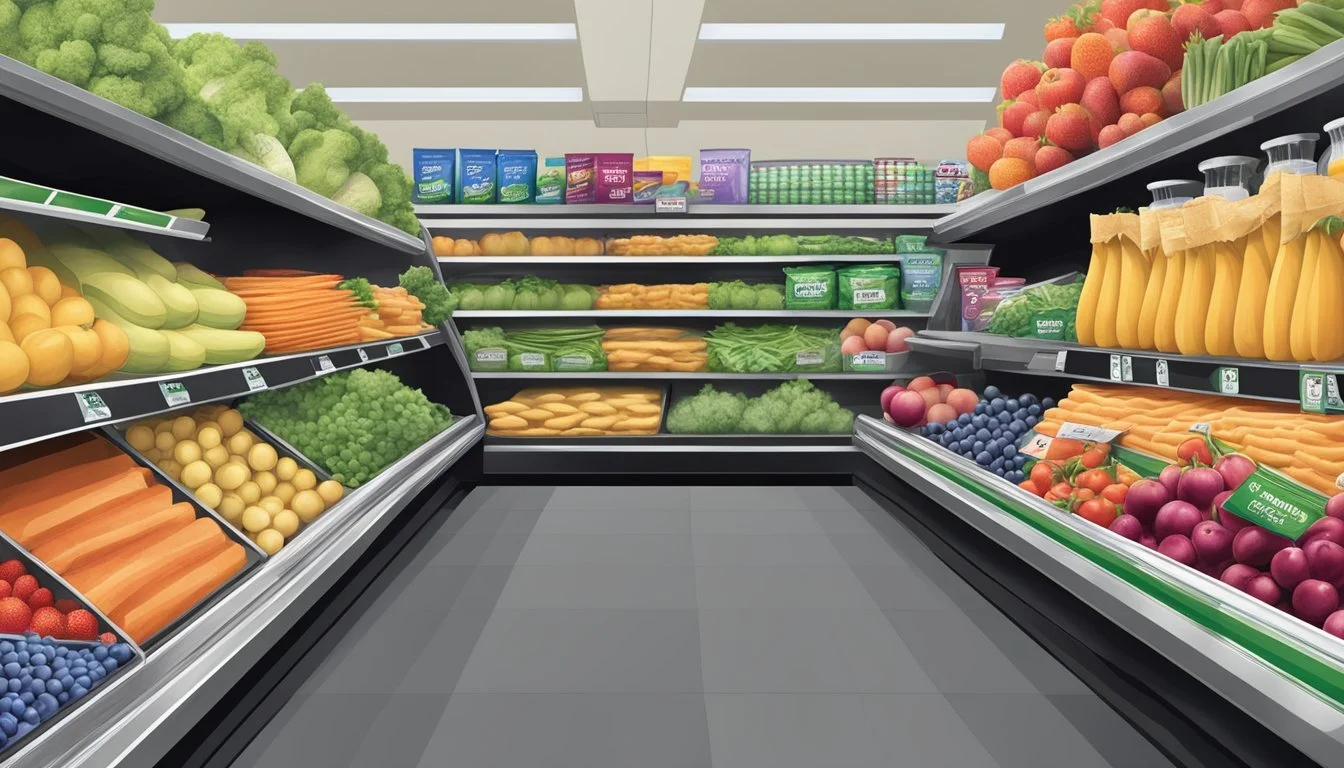Is Stop & Shop Cheaper Than WinCo Foods?
A price comparison of two popular grocery chains
Grocery shopping can be a significant expense for many households, prompting consumers to seek out the best deals. Two popular grocery chains, Stop & Shop and WinCo Foods, often come up in discussions about affordable options. While both stores aim to provide value, there are notable differences in their pricing strategies and overall costs.
WinCo Foods generally offers lower prices than Stop & Shop across a wide range of products. WinCo's business model focuses on keeping operational costs low and passing those savings on to customers. The chain is known for its no-frills approach, bulk food sections, and employee-owned structure, which contribute to its ability to maintain competitive pricing.
Stop & Shop, on the other hand, is a more traditional grocery store with a broader range of services and amenities. While it may have higher prices on average, Stop & Shop often runs promotional deals and offers a loyalty program that can help offset costs for regular shoppers. The choice between these two stores ultimately depends on individual preferences, shopping habits, and the specific products needed.
Overview of Stop & Shop
Stop & Shop is a major supermarket chain in the northeastern United States. The company has a long history and offers a wide range of products and services to meet customers' grocery needs.
History and Business Model
Stop & Shop traces its roots back to 1892 when it began as a small grocery store in Somerville, Massachusetts. Over the decades, it grew through expansions and acquisitions. In 1996, Stop & Shop merged with Dutch retailer Ahold, becoming part of a global retail group.
The company operates as a full-service supermarket chain. It aims to provide quality products at competitive prices. Stop & Shop's business model focuses on offering a one-stop shopping experience for customers.
Geographical Presence
Stop & Shop primarily serves the northeastern United States. The chain has over 400 stores across several states.
Its locations include:
Massachusetts
Connecticut
Rhode Island
New York
New Jersey
This regional focus allows Stop & Shop to tailor its offerings to local preferences. The company maintains a strong presence in both urban and suburban areas throughout its operating region.
Product Range and Services
Stop & Shop offers a comprehensive selection of grocery items and additional services.
Product categories include:
Fresh produce
Meat and seafood
Bakery items
Dairy products
Frozen foods
Household goods
The chain also provides pharmacy services in many locations. Customers can fill prescriptions and receive health advice from trained pharmacists.
Stop & Shop has embraced technology to enhance shopping convenience. The company offers online ordering and home delivery options. Many stores feature self-checkout lanes to speed up the shopping process.
The supermarket chain has also introduced private label products under its own brand names. These items often provide cost-effective alternatives to national brands.
Overview of WinCo Foods
WinCo Foods is a discount supermarket chain known for its low prices and employee-owned business model. The company offers a wide range of products while maintaining competitive pricing compared to other major retailers.
History and Business Model
WinCo Foods was founded in 1967 in Boise, Idaho, under the name Waremart. The company rebranded to WinCo Foods in 1999, with the name standing for "Winning Company." WinCo operates on a unique employee-owned model, where eligible employees become shareholders after working a certain number of hours.
This structure allows WinCo to keep costs low and pass savings on to customers. The company focuses on a no-frills approach, with warehouse-style stores and customers bagging their own groceries. WinCo's business model emphasizes bulk purchasing and direct relationships with suppliers to maintain competitive pricing.
Store Locations and Expansion
WinCo Foods primarily operates in the western United States. The company has grown to over 130 stores across 10 states:
Idaho
Washington
Oregon
California
Nevada
Utah
Arizona
Texas
Oklahoma
Montana
WinCo has been steadily expanding its presence, opening new stores in existing markets and entering new states. The company's growth strategy focuses on carefully selecting locations that align with its cost-effective business model.
Product Range and Quality
WinCo Foods offers a diverse range of products, including:
Fresh produce
Meat and seafood
Dairy products
Bakery items
Bulk foods
Health and beauty products
Household items
Pet supplies
The company is particularly known for its extensive bulk foods section, where customers can purchase items in large quantities at discounted prices. WinCo strives to maintain product quality while keeping prices low through efficient operations and direct sourcing.
Many WinCo stores also feature in-house bakeries and delis, providing fresh-made items daily. The company balances its focus on affordability with efforts to offer a variety of products to meet diverse customer needs.
Price Comparison Framework
Comparing grocery prices between Stop & Shop and WinCo Foods requires a systematic approach. Key factors influence pricing strategies at both traditional supermarkets and discount stores.
Comparison Methodology
To accurately compare prices between Stop & Shop and WinCo Foods, shoppers should create a standard basket of goods. This basket typically includes common items from various departments:
Produce (fruits, vegetables)
Dairy (milk, cheese, eggs)
Meat (chicken, beef, pork)
Pantry staples (flour, sugar, canned goods)
Household items (paper towels, cleaning supplies)
Prices should be recorded for identical products or closest equivalents. Unit pricing helps compare different package sizes. Shoppers can calculate the total basket cost at each store and determine percentage differences.
Factors Affecting Prices
Several elements impact pricing at Stop & Shop and WinCo Foods:
Business models: WinCo operates as a discount store with lower overhead, while Stop & Shop is a traditional supermarket.
Location: Real estate costs in different regions affect pricing.
Supply chain: WinCo's bulk purchasing power may lead to lower prices.
Product selection: Stop & Shop might offer more premium or specialty items.
Sales and promotions: Both stores run periodic discounts that can significantly alter price comparisons.
Store brands: Private label products often provide cost savings at both retailers.
Cost Analysis of Common Grocery Items
Comparing prices between Stop & Shop and WinCo Foods reveals notable differences across various product categories. The cost variations can impact overall grocery bills for shoppers.
Produce and Fresh Food
Stop & Shop tends to have higher prices on produce compared to WinCo Foods. Apples at Stop & Shop average $1.99 per pound, while WinCo offers them for $1.49 per pound.
Bananas show a similar trend, with Stop & Shop pricing them at $0.69 per pound and WinCo at $0.58 per pound.
For vegetables, a head of lettuce costs $1.79 at Stop & Shop, whereas WinCo sells it for $1.49. Tomatoes are priced at $2.49 per pound at Stop & Shop, compared to $1.99 at WinCo.
Dairy and Eggs
The dairy aisle reveals more competitive pricing between the two stores. A gallon of milk costs $3.49 at Stop & Shop and $3.29 at WinCo.
Eggs show a more significant difference, with a dozen large eggs priced at $2.99 at Stop & Shop and $2.49 at WinCo.
Cheese prices vary by type, but on average, WinCo offers slightly lower prices. A 16-ounce block of cheddar cheese costs $3.99 at Stop & Shop and $3.79 at WinCo.
Meat and Deli Items
WinCo generally offers lower prices on meat and deli items. Ground beef (80% lean) is priced at $4.99 per pound at Stop & Shop, while WinCo sells it for $4.59 per pound.
Chicken breast shows a similar trend, with Stop & Shop pricing it at $3.99 per pound and WinCo at $3.69 per pound.
Deli meats like sliced turkey breast cost $7.99 per pound at Stop & Shop, compared to $7.49 at WinCo. Hot dogs are cheaper at WinCo, priced at $3.49 for a pack of 8, while Stop & Shop sells them for $3.99.
Dry and Packaged Goods
Pantry staples and packaged goods often show smaller price differences between the two stores. A 5-pound bag of all-purpose flour costs $2.99 at Stop & Shop and $2.79 at WinCo.
Breakfast cereals have varying price differences. A 18-ounce box of Cheerios is priced at $4.49 at Stop & Shop and $4.29 at WinCo.
Canned goods like soup show minimal differences, with a 10.75-ounce can of tomato soup costing $1.29 at Stop & Shop and $1.19 at WinCo. Pasta sauces are priced similarly, with a 24-ounce jar costing $2.49 at Stop & Shop and $2.39 at WinCo.
Deals and Discounts Strategies
Savvy shoppers can significantly reduce their grocery bills by utilizing various money-saving tactics at Stop & Shop and WinCo Foods. Both stores offer opportunities to trim costs through strategic shopping approaches.
Coupons and Sales
Stop & Shop provides digital and paper coupons, accessible through their app and weekly circulars. These coupons often align with in-store sales, amplifying savings. WinCo Foods, while known for consistently low prices, offers limited manufacturer coupons. Their sales are typically unadvertised, requiring shoppers to stay alert for in-store markdowns. Both chains feature rotating weekly deals on various products, from produce to pantry staples.
Tip: Combine manufacturer coupons with store sales at Stop & Shop for maximum savings.
Loyalty Programs
Stop & Shop's Gas Rewards program allows customers to earn points on purchases, redeemable for fuel discounts. Their app offers personalized deals based on shopping history. WinCo Foods, operating on a low-price model, does not have a traditional loyalty program. However, they provide consistent savings through their everyday low prices.
Stop & Shop loyalty perks:
Gas Rewards
Digital coupons
Personalized offers
Bulk Purchase Savings
WinCo Foods excels in bulk savings, offering an extensive bulk foods section. Shoppers can purchase exact quantities needed, reducing waste and cost. Items like spices, grains, and nuts are significantly cheaper in bulk. Stop & Shop provides some bulk options, primarily in larger package sizes of popular items.
WinCo bulk savings examples:
Baking supplies
Nut butters
Tea and coffee
Candy
Buying case quantities at WinCo can lead to an additional 5% discount, ideal for non-perishable items. Stop & Shop occasionally offers bulk deals on seasonal items or during specific promotions.
Customer Shopping Experience
Stop & Shop and WinCo Foods offer distinct shopping environments, each with its own strengths and weaknesses. These differences impact the overall customer experience in terms of store layout, service quality, and checkout efficiency.
Store Layout and Design
Stop & Shop typically features a more traditional supermarket layout. Aisles are organized by category, with produce, bakery, and deli sections around the perimeter. The stores often have a brighter, more polished appearance.
WinCo Foods adopts a no-frills warehouse-style design. The stores are larger, with wider aisles and bulk bins for many products. This layout allows for greater product variety and cost savings, but may feel less inviting to some shoppers.
Both chains prioritize convenience, but WinCo's layout can be more challenging to navigate for first-time visitors.
Customer Service
Stop & Shop generally provides a higher level of customer service. Staff members are more readily available throughout the store to assist shoppers. The chain often offers additional services like pharmacy consultations and in-store nutritionists.
WinCo Foods operates on a leaner staffing model. Employees focus primarily on restocking and cashier duties. This approach helps keep prices low but may result in less personalized assistance for customers.
Both stores train their staff to be helpful and courteous, but the level of interaction differs due to their operational models.
Check-out Efficiency
WinCo Foods emphasizes efficiency at checkout. The stores feature multiple lanes and often employ a "bag-your-own-groceries" system. This approach can lead to faster transactions, especially during busy periods.
Stop & Shop offers a mix of traditional checkout lanes and self-service options. The chain has invested in technology to improve checkout speed, including handheld scanners for customers to use while shopping.
Both stores aim to minimize wait times, but WinCo's model may be more efficient for large shopping trips. Stop & Shop's varied options cater to different customer preferences.
Brand and Quality Comparison
Stop & Shop and WinCo Foods offer different approaches to product selection and quality. Both stores aim to provide value, but their strategies differ in terms of brand offerings and overall product quality.
Name-Brand vs. Store Brand
Stop & Shop carries a wide variety of name-brand products alongside its store brands. This gives customers more options but can lead to higher prices. WinCo Foods, on the other hand, focuses more on its private labels and store brands to keep costs down. WinCo's strategy allows them to offer lower prices on many items.
Stop & Shop's store brands include:
SB (Stop & Buy)
Nature's Promise
Taste of Inspirations
WinCo's private labels include:
WinCo Foods
Westernfamily
Springfield
Quality of Products
Product quality can vary between the two stores. Stop & Shop, as a regional chain, often stocks higher-quality produce and meats. Their larger selection of name-brand items may appeal to customers seeking specific products or brands.
WinCo Foods prioritizes affordability, which can sometimes result in a more limited selection of premium products. However, many customers find WinCo's quality acceptable, especially considering the lower prices.
Factors affecting product quality:
Sourcing practices
Storage and handling
Turnover rate of perishables
Both stores strive to maintain quality standards, but customer experiences may differ based on individual store locations and management.
Additional Services and Features
Stop & Shop and WinCo Foods offer various services beyond basic grocery shopping. These additional features aim to enhance customer convenience and provide specialized products.
Online Shopping and Delivery
Stop & Shop provides an extensive online shopping platform. Customers can browse products, create shopping lists, and schedule home delivery or curbside pickup. The service offers same-day delivery options in many areas.
WinCo Foods has more limited online services. While they don't offer home delivery, some locations provide curbside pickup for online orders. Customers can create shopping lists on the WinCo app to streamline their in-store experience.
Both stores offer digital coupons and rewards programs through their respective mobile apps. These features help shoppers save money and track their purchases.
Specialty Departments
Stop & Shop typically includes more extensive specialty departments. Many locations feature full-service delis, bakeries, and seafood counters. Some stores also have florists and pharmacies.
WinCo Foods focuses on bulk foods as a key specialty. Their bulk sections offer a wide range of products, from grains and nuts to candies and spices. This allows customers to purchase exactly the amount they need.
Both supermarkets provide fresh produce departments. Stop & Shop often carries a broader selection of organic and local options. WinCo Foods emphasizes value, with competitive pricing on staple fruits and vegetables.
Financial Considerations for Consumers
Shoppers comparing Stop & Shop and WinCo Foods should weigh several financial factors. Price differences between the two stores can significantly impact household budgets. Payment methods accepted also vary, affecting consumer choices.
Budget Management
WinCo Foods typically offers lower prices than Stop & Shop. Savvy shoppers can save money by purchasing staples and bulk items at WinCo. The store's no-frills approach and focus on private label products contribute to its cost-effective pricing.
Stop & Shop, while generally pricier, runs frequent sales and promotions. Consumers can maximize savings by planning purchases around these deals. The store's loyalty program provides additional discounts and personalized offers.
To stretch budgets further, shoppers should compare unit prices and consider store brands at both retailers. Buying in-season produce and stocking up on non-perishables during sales can lead to substantial savings over time.
Payment Options
WinCo Foods accepts cash, debit cards, and EBT. The store does not take credit cards, which helps keep costs down but may inconvenience some shoppers. This policy encourages customers to stick to their budgets and avoid credit card debt.
Stop & Shop offers more payment flexibility. They accept cash, debit cards, credit cards, and EBT. The store also supports mobile payment options like Apple Pay and Google Pay. This variety allows customers to choose their preferred payment method.
Some credit cards offer cashback on grocery purchases, potentially offsetting higher prices at Stop & Shop. However, consumers should be cautious about accruing interest charges if they carry a balance. Debit cards remain a practical choice for those aiming to control spending at either store.
Conclusion
WinCo Foods generally offers lower prices than Stop & Shop. WinCo's business model as a discount grocer allows them to keep costs down and pass savings on to customers. Their bulk bins, store brand products, and no-frills approach contribute to cheaper prices overall.
Stop & Shop provides a wider selection and more upscale shopping experience. However, this comes at a higher cost to consumers. Their prices tend to be higher across most product categories compared to discount chains like WinCo.
For shoppers prioritizing savings, WinCo Foods is likely the better choice. Those willing to pay more for convenience, variety, or specific brands may prefer Stop & Shop. Budget-conscious customers can stretch their grocery dollars further at WinCo.
It's worth comparing prices on commonly purchased items at both stores. This allows shoppers to make an informed decision based on their specific needs and preferences. Factors like location, product availability, and shopping frequency also play a role in choosing between the two retailers.
Ultimately, WinCo Foods offers greater potential for savings on groceries. Stop & Shop provides a different shopping experience at a premium. Consumers must weigh cost against other factors when deciding where to shop.

